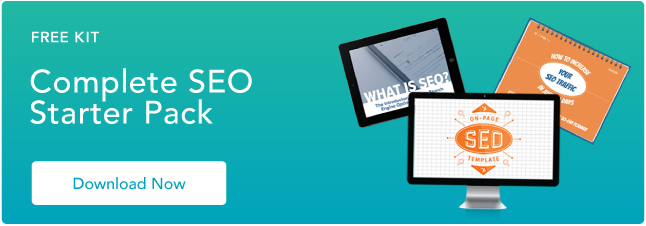Here's what you need to know.
What is EEAT compliance?
Before we talk about EEAT compliance, it's important to have a basic understanding of what EEAT even is. So take a minute to walk through this refresher, in case you need one. Now that we're up to speed, let's dive deeper into the world of EEAT compliance.
If you're creating an EEAT-compliant website, you're building a website that prioritizes Google's guidelines for search quality raters on:
-
Experience
-
Expertise
-
Authoritativeness
-
Trustworthiness
Of course, the content that your site features is part of this equation, which is why it's essential that your content strategy takes EEAT into account. (Ask any writer at HubSpot, and they'll give you the lowdown on how important EEAT is.) However, that's not all you should consider when creating your website. There are actually structural facets of EEAT that you can build into your site to give your content the best chance of ranking.
What should you prioritize for EEAT compliance?
According to Ivelisse Rodriguez, Marketing Manager, Historical Optimization at HubSpot, there are things you can do both on your website and off of it to boost your likelihood of getting Google to notice and appreciate your EEAT efforts.
"To rank favorably in this new EEAT landscape, you should have a well-optimized "about" page that showcases your experience and expertise, an ability to speak about your industry and chosen topics with authority, and external references and citations that showcase your trustworthiness," she shares. "Whether that's a LinkedIn page or a wide collection of guest blog posts on other publishers' websites, you want to prove to Google that you know what you're talking about — and that others agree."
From a design and development perspective, this is important to note, as there's an opportunity to build in pages that showcase expertise. For example, you may choose to build a page on your website that demonstrates all of the other publications your work has been featured in. This can help bolster your authoritativeness.
Bianca D'Agostino, Sr. Marketing Manager, SEO & Growth Marketing at HubSpot, shares that it's crucial you add thought leadership, author pages, and a robust about page on your website for it to fulfill EEAT compliance guidelines.
According to D'Agostino, an About page provides a place to establish authority. "Telling users who you are and what you do builds trust and authority, so showing up and crucial out when it comes to sharing your expertise in your line of work is crucial," she says.
D'Agostino says that thought leadership is another must to demonstrate to the search engine that your site is worth ranking. "Use research and data — ideally your own research and data — to build that credibility for yourself and with your audience," she adds.
Lastly, D'Agostino believes that author pages can set your site apart and establish invaluable credibility. As you build or design your website, adding author pages that showcase your writers' expertise is an excellent way to get Google to take notice of the content you're putting out. "The experts and expertise play is critical for ranking for future things like Google Perspectives," says D'Agostino. "Putting real, expert faces to your subject matter gives you more authenticity in the eyes of Google and your potential customers/readers."
While author pages and a thorough, well-structured About page are crucial, Rodriguez stresses that you should look to infuse EEAT best practices throughout your site, not only there.
"Designers and developers should focus on highlighting their clients' expertise, expertise, authority, and trustworthiness on every possible page," she says. "Whether that's through testimonial carousels, well-built author pages, and modules with external links, a website developer should strive to showcase their clients' EEAT across the entirety of the website — not just the blog or even the 'about' page."
Why is EEAT compliance important?
If you don't prioritize EEAT compliance when building your site (and developing your content!), you risk making your site virtually unfindable on the SERPs. But that's not all it's about, according to D'Agostino.
"EEAT is proof that personalization and intent are keys to not just ranking well on a SERP, but connecting and converting your audience," she says. D'Agostino also believes that EEAT isn't only important from an SEO perspective, but also helps website managers maintain focus where it needs to be: On the users.
"It puts the emphasis on the user — as it should be," she says. "EEAT is a guide to ensure that you're honing in on what you know/what you do best, and not just creating content just to create content. Grounding your web design and web content in a way that speaks to these content guidelines ensures you're finding a healthy balance that is human-focused."
Build an EEAT Compliant Website
Building an EEAT compliant website is crucial because it helps you get your content in front of the right users. More importantly, once your users are on your website, it helps them actually covert. I recommend you prioritize EEAT compliance, and watch your site grow.
Technical SEO


.png)



![9 HTML SEO Tags That Impact Your Ranking [Cindy Krum's Tips]](https://53.fs1.hubspotusercontent-na1.net/hubfs/53/html-seo-1-20241119-1659249.webp)


